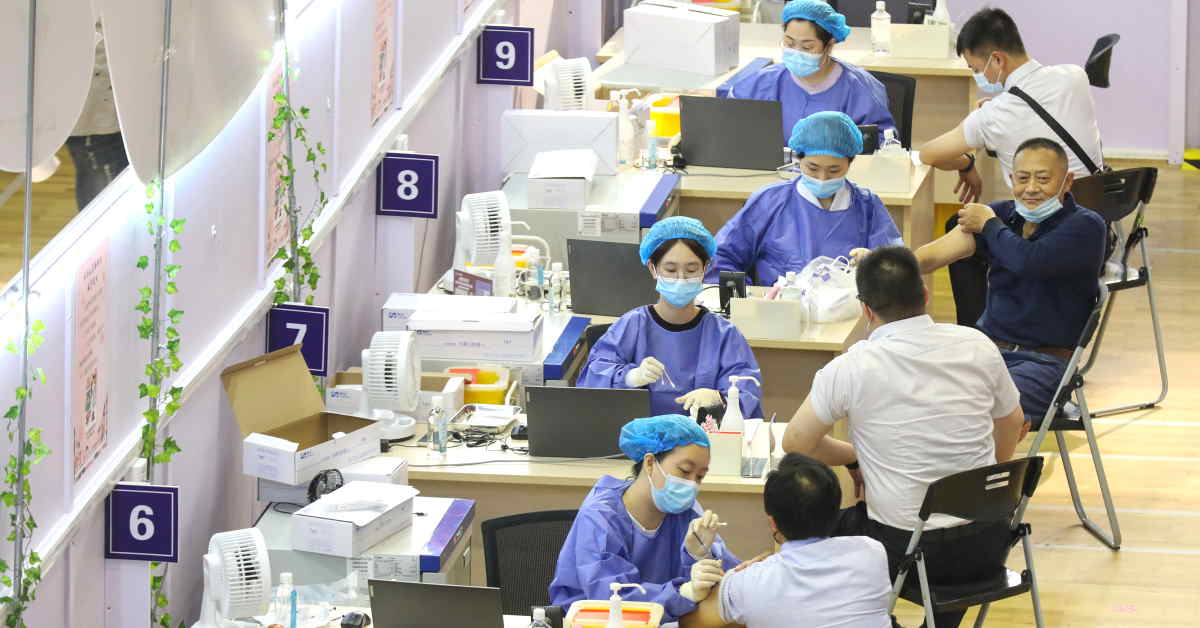From South Korea to Australia, authorities are struggling to contain the highly transmissible coronavirus strain that has caused a surge in UK, Europe and the United States (US).
Countries throughout Asia Pacific – from South Korea to Australia – have been hit by a rise in coronavirus infections as the Delta variant threatens a new wave of the pandemic even in a region renowned for tackling the virus with a high degree of success.
China reported 57 new coronavirus cases in the mainland for 6 July, up from 23 cases a day earlier, the national health authority said on Wednesday. It was the highest daily tally of infections since 30 January.
15 of the new cases were local infections, the national health commission said in a statement. All 15 cases were located in Yunnan province in the city of Ruili, which borders Myanmar. In response, authorities locked down the city, shutting most businesses and requiring residents to stay at home.
The latest cases were discovered during mass testing of residents. The positive cases include Chinese and Myanmar nationals in the city, where there is an active cross-border trade. Authorities said they would step up border controls.
Ruili previously had a COVID outbreak in March and launched a campaign to vaccinate the entire city in April.
China has relied on a tough lockdown strategy and mass testing to tamp down outbreaks, even as it has stepped up the pace of vaccinations. Central health officials have said they want to vaccinate 80 percent of the population.
In South Korea, where vaccinations have been slow, authorities reported the highest cases since December 2020. The 1,212 new cases reported on Wednesday came close to the country’s largest daily increase during the pandemic, on Christmas Day, when officials listed 1,240 new cases.
Cases of the highly contagious Delta variant are “spreading fast, especially in the Seoul metropolitan area”, Yonhap reports. It was spreading especially rapidly among unvaccinated people in their 20s and 30s.
The government had planned to raise the cap on private social gatherings from four to six people and allow restaurants to extend indoor dining by two hours starting this month. But officials in Seoul and nearby areas have held off as infections rise. Just 30 percent of South Korea‘s people have received the first dose of a coronavirus vaccine as of Wednesday.
Prime minister Kim Boo-kyum says officials will consider tougher social distancing rules if transmissions continue to grow over the next two or three days.
In Australia, which has vaccinated less than 10 percent of its eligible population, cases continued to climb in the state of New South Wales, which is at the centre of a new outbreak. On Wednesday the state extended the lockdown in its capital Sydney for another week to contain the latest outbreak of the highly infectious Delta variant.
The two-week stay-home orders, which were scheduled to end Friday, will now end on 16 July, state premier Gladys Berejiklian told reporters in Sydney. Twenty-seven new locally acquired cases of Covid were reported in NSW, up from 18 a day earlier, taking the total infections in the outbreak to more than 350.
The Delta variant is spreading in Thailand, too – the country reported 54 deaths and 6,519 new cases on Wednesday. Delta cases now account for the majority of new cases in Bangkok.
Finally, in Indonesia, a nightmarish coronavirus wave has brought hospitals to their knees, forcing desperate families to hunt for oxygen tanks to treat the sick and dying at home. Nearly 1,000 Indonesian medical workers have died of COVID-19, including more than a dozen who were already fully inoculated.
On Tuesday, Jakarta said about 10,000 concentrators – devices that generate oxygen – were to be shipped from nearby Singapore. Some had already been flown in on a Hercules cargo plane. The government said it was also in talks with other countries, including China.
Senior minister Luhut Binsar Pandjaitan said the country was bracing for up to “70,000 [cases] per day at worst – but we hope that won’t happen”. – The Guardian
